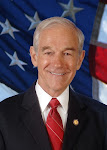By Douglas Kohn
Kohn@Fordham.edu
(Publisher's note: This is the first part in a two part series on the matter of Afghanistan. The second part will be published tomorrow.)
President Obama has just ordered 17,000 troops into Afghanistan to combat the resurgent Taliban and hopefully capture Osama bin Laden. This is the right thing to do but it is riddled with hypocrisy.
Let us think of history for a moment. Three great empires were humbled in Afghanistan. After Alexander the Great defeated the Persian Empire in less than ten years in 3 battles, his soldiers poured over from Persia (Iran) and into Afghanistan on their way to India. It was fighting in Afghanistan and Pakistan (then considered India) that eventually forced Alexander to give up his dreams of conquest. The resistance of the Afghani people and the Indians (basically today’s Pakistanis) beyond was so fierce that his brave soldiers could no longer take it and forced Alexander to turn around after the Battle of the Hydapses River in 325 BC. Alexander later died in Babylon in 323 BC.
Beginning the 19th Century, the fierce Afghani people began to cause serious security problems for the British and Russian Empires. The British had set up a massive colony in India known as the British Raj. It was considered a model of imperial domination because the number of British it took to rule India was so small compared with the size, geographically and demographically, of India. There were two objectives Britain had in its interventions in Afghanistan. One was part of an imperial competition known as the Great Game between the Empires of Britain and Russia in Central and South Asia. Britain had a key interest in ensuring that the Russians could never completely overrun Afghanistan and threaten their prized possession, India. The other security concern was the Afghani people themselves. Warlords in Afghanistan had regularly raided into British India and disrupted trade. From the point of view of the British Empire, this was an unacceptable state of affairs.
Britain then fought three wars in Afghanistan, each one bloodier than the last. But the Brits were not stupid and knew they could never come to dominate Afghanistan. They knew the fate of Alexander. They setup a friendly king who held some authority but could never really control the country. They made alliances with local warlords to keep the peace. Rudyard Kipling once remarked, “When you're wounded and left on Afghanistan's plains, and the women come out to cut up what remains, jest roll to your rifle and blow out your brains and go to your gawd like a soldier.” Afghanistan is turf unfriendly to civilized people.
Lastly, there was the intervention in Afghanistan of the Soviet Union. The Soviet Union, though it was never as economically powerful as it seemed, was still the greatest enemy that ever faced the United States and a nation whose ideology enslaved nearly half of humanity in the second half of the Twentieth Century. In 1979, its treasury swelled by a huge increase in the price of oil, the Soviet Union flexed its muscles and invaded Afghanistan, throwing all of its military might into the venture. This was an ill fated attempt. A colorful covert alliance began to supply and train Afghani guerillas for resistance against the Soviet-backed communist government and Russian soldiers installed in Afghanistan. With American, Pakistani, Israeli, Egyptian, Saudi, British and Chinese backing, the Afghani guerillas were turned into one of the most formidable fighting forces in the history of mankind, with brutality to match their skill. The Soviets received such a crushing, overwhelming and humiliating defeat in Afghanistan that they were never to recover, and two years later the Soviet Union collapsed.
In the interim, a massive civil war began in Afghanistan. There were no good guys. Every side in the civil war committed acts of barbarity matched only by the previous Russian invaders. Eventually, in 1996, the Taliban was in control of most of the country, with the exception of the Northern Alliance. The Taliban presided over a totalitarian regime committed to a hateful Islamofascist ideology no less barbaric than Communism or Nazism, only less powerful.
These events were the incubator of Osama bin Laden’s now infamous terrorist group, al Qaeda. Given shelter by the Taliban, he was able to carry out attacks on America, our interests and our allies all over the world, particularly in the Middle East.
Saturday, February 21, 2009
Subscribe to:
Post Comments (Atom)






No comments:
Post a Comment